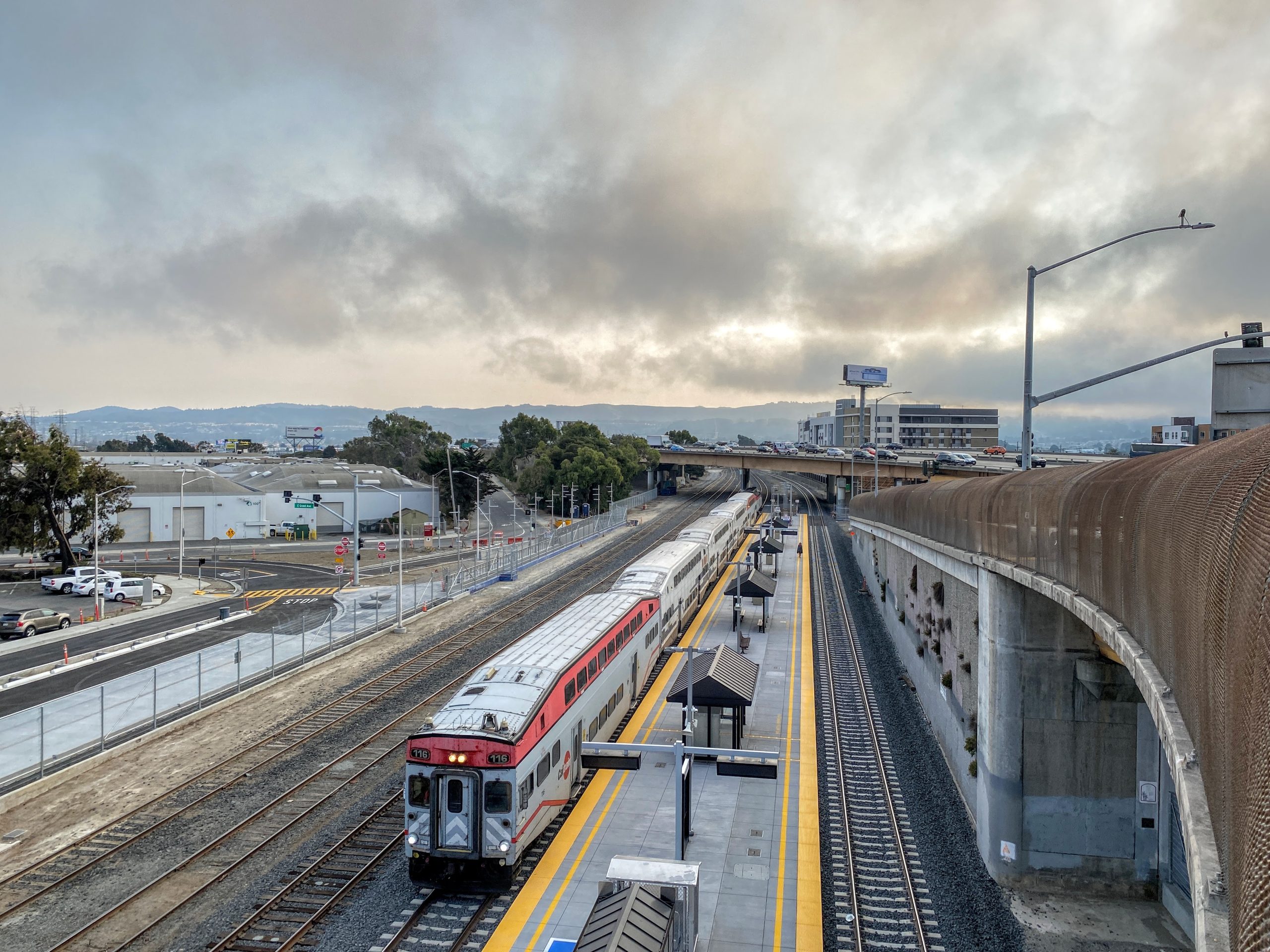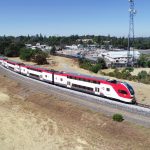 Works are advancing at Caltrain stations following the awarding of a contract at one facility and entering the final construction stage at another one.
Works are advancing at Caltrain stations following the awarding of a contract at one facility and entering the final construction stage at another one.
The Caltrain Board of Directors decided to award a construction manager / general contractor (CM/GC) contract to a joint venture of Stacy & Witbeck, Inc. and Myers & Sons Construction for the Mountain View transit centre grade separation and access project. USD 1.49 million is the the cost of the first phase, referred to as pre-construction services. The project is funded by the Santa Clara Valley Transportation Authority Measure B Programme and the City of Mountain View, in Santa Clara County, California.
The project will improve safety and multimodal access to the transit centre and Downtown Mountain View and is focused on the Castro Street / Moffett Boulevard / Central Expressway intersection and will close the Castro Street crossing of the rail tracks. A shared use pathway that allows pedestrians and cyclists to pass under the tracks and Central Expressway will offer safe and easy access to residents and office workers to Mountain View’s vibrant downtown.
The City of Mountain View identified this project as phase I of the 2017 Transit Master Plan. Determinations will be made this year regarding the architectural design and public art that will be featured, with the final design scheduled to be completed in the summer 2024 when works will also start. The construction is expected to be completed in late 2026.
This awarded contract follows an earlier action to authorise the use of CM / GC for the project, as opposed to conventional design-bid-build project delivery. There are advantages to the CM / GC delivery which engages the contractor earlier in the project. This is Caltrain’s first use of CM / GC project delivery, and is a key strategy being deployed by Caltrain’s Design and Construction team in expanding the pallet of project delivery methods being utilised to increased schedule and cost certainty, particularly on large, complex projects.
Creating a grade separation at Castro Street so people and vehicles will no longer be required to cross the tracks will improve safety for pedestrians and bicyclists, reduce train gate down-time and horn noise, reduce conflicts between trains, vehicles, pedestrians, and bicyclist, and improve traffic flow.
The other project involves the Bayshore station overpass rehabilitation that has moved into the final phase of construction which will end this summer. The project will remove and replace the coating on the station’s pedestrian bridge and stairwells to ensure the overpass remains safe and fully functional. The elevators, stairs and walkway overpass will remain closed to pedestrian traffic during construction.
The USD 6.87 million project began in September 2022 and is made possible through a combination of state and San Francisco Prop K funds.
The 27 Caltrain stations are providing connection on the 82 km rail corridor between San Francisco Peninsula, through the South Bay to San Jose and Gilroy. Part of infrastructure, at 17 Caltrain stations foundations have been completed while works are underway covering for poles, wires and traction power system.
In September 2022, Caltrain unveiled the new electric trains which currently are being tested and in 2024 will enter passenger operation, replacing the replace the 30-year-old diesel fleet. This is part of Caltrain electrification project of the entire corridor from San Francisco Caltrain station to the Tamien Caltrain station (in San Jose), increasing service to six trains per peak hour per direction, and maintaining operating speed up to 127 km/h.
USD 2.44 billion is the total value of the project, of which USD 1.75 billion represents the electrification works and USD 693.5 million the rolling stock procurement signed with Stadler which includes one demonstration project for a battery electric trainset which will enable Caltrain to pilot a technology that could provide zero emissions service from Tamien to Gilroy and Salinas on UPRR owned line. Caltrain is engaged in discussion with the California State Transportation Agency (CalSTA) on funding this demonstration train. The contract provides for an option for Caltrain to order six BEMUs expected to cost between USD 70 – 80 million. The operator will replace 20 diesel locomotives with 19 seven-car EMUs.
In March 2023, the electrification project was 81.46% completed and is expected to be finalised in September 2024.
Share on:







